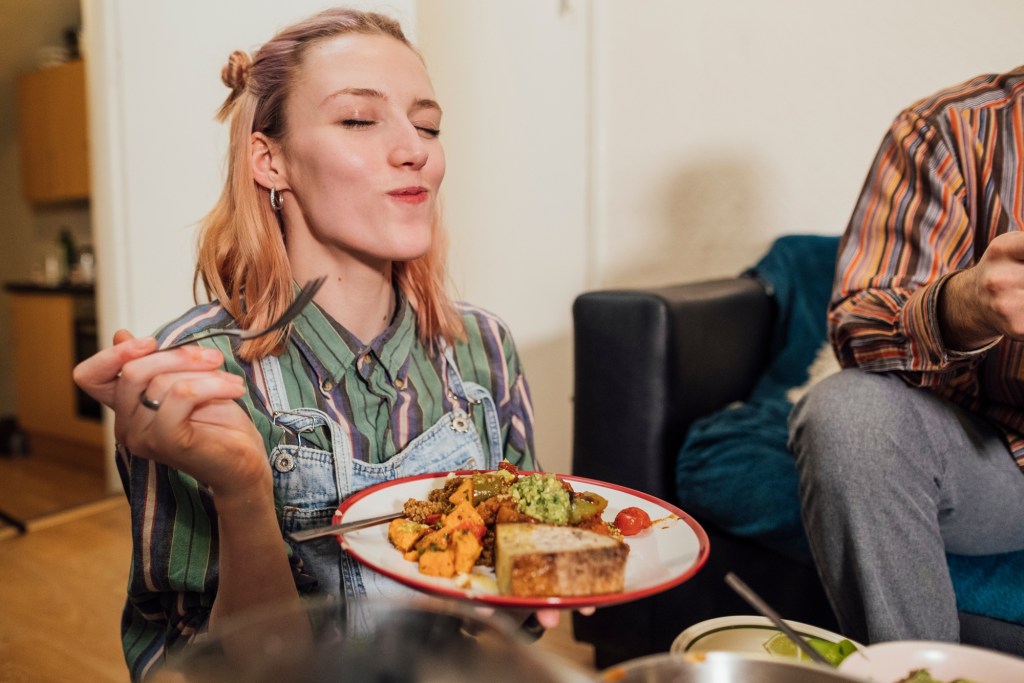It’s not just the kale. There’s something about vegans that really gets under meat-eaters’ skin—and researchers think they’ve finally found the answer.
A new study suggests it’s not the lifestyle itself, but how it makes others feel about their own choices. Spoiler: not great. Scientists say that for many carnivores, seeing someone happily munch on a meat-free meal brings up a cocktail of envy, insecurity, and quiet rage.
Videos by VICE
The research, published in Food Quality and Preference, surveyed thousands of people across Europe and asked them to judge imaginary shoppers based on their grocery lists. The only variable? Meat. Some lists leaned into steaks and sausages, others were fully vegetarian, and a third category sat somewhere in between.
What they found: the more plant-based the list, the more moral and health-conscious people assumed the shopper was. But instead of admiration, that assumption sparked a whole lot of side-eye. According to lead author Roosa-Maaria Malila, these qualities triggered feelings of “fear, envy, contempt, and anger” in meat-preferring participants. In some cases, respondents said they wanted to exclude vegetarians from social circles altogether.
“In our research, we found that people even wanted to act aggressively towards vegetarians,” Malila said in a press release.
The study authors say these reactions reflect a broader cultural anxiety: most people know they should be eating less meat for environmental and health reasons, but changing habits is hard. So instead of swapping the burger for a beetroot patty, many people lash out at those who already have.
“Understandably, changing one’s own consumption habits is not so simple,” the study notes. “This can be reflected in frustration and channeled through those who are already driving change.”
Even with the boom in meat substitutes, most people still aren’t biting. Veggie sausages and lentil nuggets aren’t just seen as bland—they’re seen as risky. “Food is quite a strong part of our social identity,” Malila explained. “If and when vegetarian food evokes negative feelings, not many people want to risk being associated with it.”
In other words: belonging still beats broccoli.
That said, researchers believe the stigma isn’t inevitable. They argue that current messaging around plant-based eating often highlights environmental benefits when it should focus on personal perks instead. If the goal is less meat, Malila says marketing should show people what’s in it for them, not just the planet.
“Belonging to a group is an evolutionary motive,” she added. “We need acceptance from our fellow human beings.”
Forget bacon. What really gets people heated is the quiet, smug glow of someone eating vegetables on purpose.
More
From VICE
-

De'Longhi Dedica Duo – Credit: De'Longhi -

We Are/Getty Images -

Photo by tang90246 via Getty Images -

Credit: SimpleImages via Getty Images
